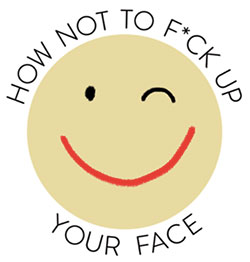By Valerie Monroe
If you’re interested in feeling happier about your appearance—especially as you age—you might like reading what she has to say about it. For more of her philosophical and practical advice, subscribe for free to How Not to F*ck Up Your Face at valeriemonroe.substack.com.
RESPONDING TO a recent post about complicated skincare routines for young girls, a loyal reader sent me a DM about a new Christian Dior baby care line that includes—you guessed it—skincare.
Babies have, of course, had their own skincare products for ages; I use a very popular baby lotion every day ($4.99). Now, I can also find a cleansing foam ($95), a moisturizer($115), and, for some reason, a scented water-perfume ($230).
I’m not immune to the seduction of the scent: My favorite perfumer happens to be Francis Kurkdjian, who created Bonne Étoile for Baby Dior. Its “creative, childlike notes,” whatever those might be, pique my interest, knowing the magic Francis has evoked in the past.
And speaking of magic: A reader wonders how wearing sunscreen . . . at night . . . might affect her complexion.
Q: I’m about to turn 60 and it’s been my year of confronting my face in the mirror. I can’t say I’ve learned to love aging yet, but I’m trying. I’ve always been complimented about how young I look (sunscreen, baby), but I’m moving beyond that now. And I don’t like it. Again, I’m trying. I have a couple of questions. 1) Is it bad to use your moisturizer with sunscreen at night? I’d love not to buy a different one for nighttime if I don’t have to. 2) Do you know anything about the brand Neova? It’s pricey but claims to reverse sun damage.
A: Your question brings up a point I’d like to make about my insistence that you learn to love your face.
You say you’re beginning to see signs of aging you don’t like and that you’re trying (I assume) to not not like. Dear Reader, I’m afraid your endeavor is going to continue to be frustrating. I don’t see how we can’t dislike what happens to our face as we age, as it telegraphs to us with increasing evidence that we’re only temporarily undead.
It makes my (73-year-old) skin crawl when I hear people say we should embrace—a word I hope to never use again in this context—the inevitable changes of age. When I suggest you learn to love your face, what I mean is: Learn to see the person behind it; learn how not to objectify it, so you can come to love what it represents, which is gorgeous, kind, compassionate you. In my experience, this takes most of the sting out of the losses we endure—and reminds us of our value, which is not dependent on our appearance. Clap if you believe in fairies (and this advice).
I turned to HNTFUYF DermDiva, Heidi Waldorf, for an expert opinion on your question. Naturally, she delivered that and more.
“First, kudos on following the golden rule for maintaining beautiful skin by wearing sunscreen,” she said. “Using your daytime moisturizer with sunscreen at night won’t hurt your skin. The primary reason people use a different product at night is because they want a heavier moisturizer in the evening.”
Daytime products need to be light or smooth for your comfort during normal things you do during the day, like layering makeup over your moisturizer or sweating at the gym. Also, at night you have an opportunity to use a product with additional treatment ingredients, said Waldorf. So the doctor does recommend using a moisturizing sunscreen during the day and a different moisturizer at night. If your day product isn’t moisturizing enough during cold or dry weather, she advises applying your night moisturizer under or over it.
And neither product needs to be expensive; I use this daytime moisturizer/sunscreen and this one at night (over this prescription retinoid).
As for your question about the Neova line, Waldorf declined to say whether one premium-priced product is better than another or whether it’s worth the cost. Her general rule is, if you’re going to invest in expensive skincare, you don’t have to buy the whole line; instead, choose the line’s “hero” product, the one containing the maximum amount of whatever the manufacturers claim makes their products special.
Me? The person who is neither a doctor nor a scientist (nor a very good consumer)? I wouldn’t spend hard-earned cash (thank you, paying subscribers!) on an expensive moisturizer no matter how lofty the claims. Because even if the product does have some effect, it likely won’t be an appreciable one. One ingredient that’s been proven to reverse sun damage is vitamin A in the form of retinoic acid; studies about its effectiveness are robust. You can read more about retinoids here.
Finally, you may have already celebrated your 60th birthday, Reader, but having just had a birthday myself, I wish for you what I most wished for: peace.
MyLittleBird often includes links to products we write about. Our editorial choices are made independently; nonetheless, a purchase made through such a link can sometimes result in MyLittleBird receiving a commission on the sale. We are also an Amazon Associate.



